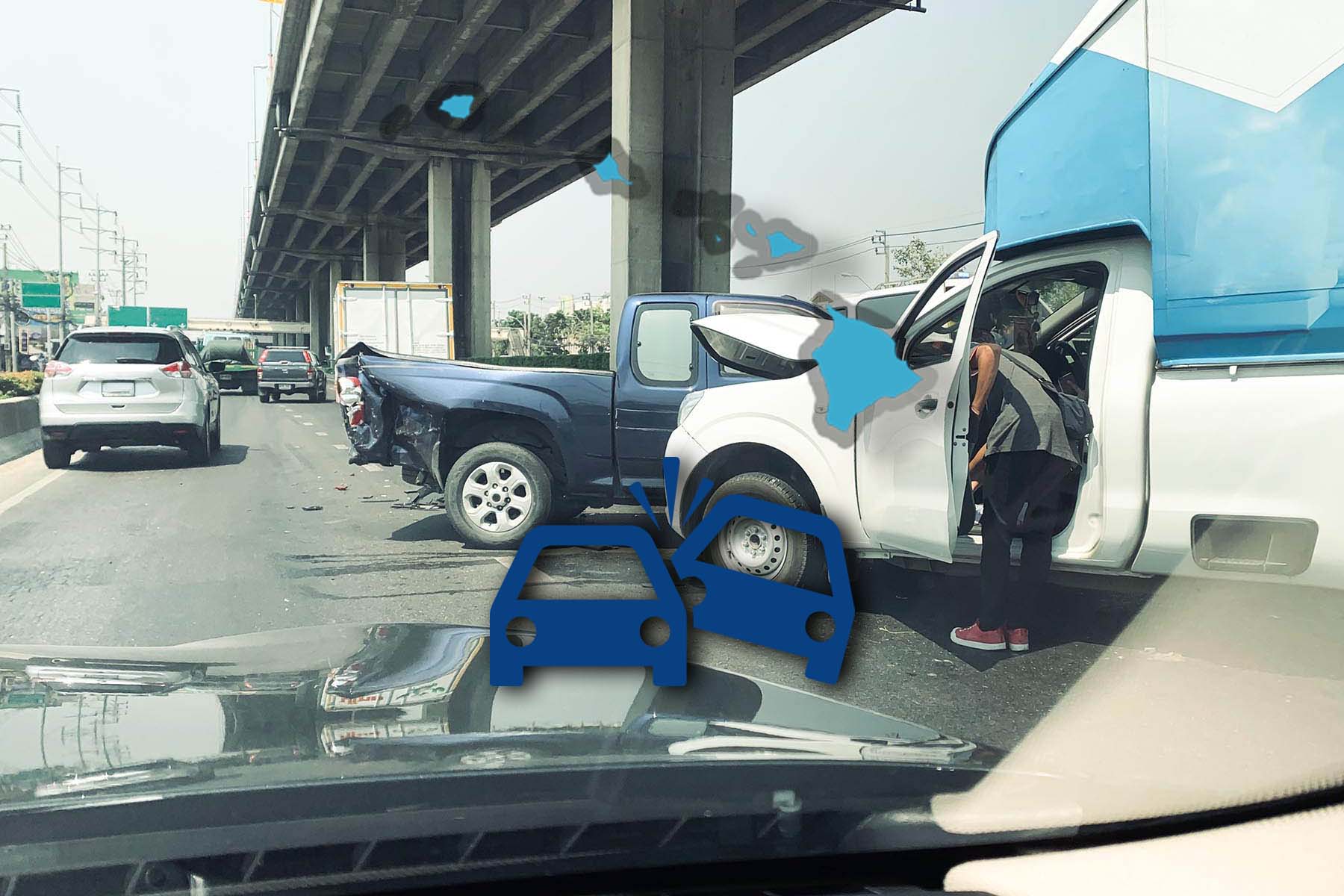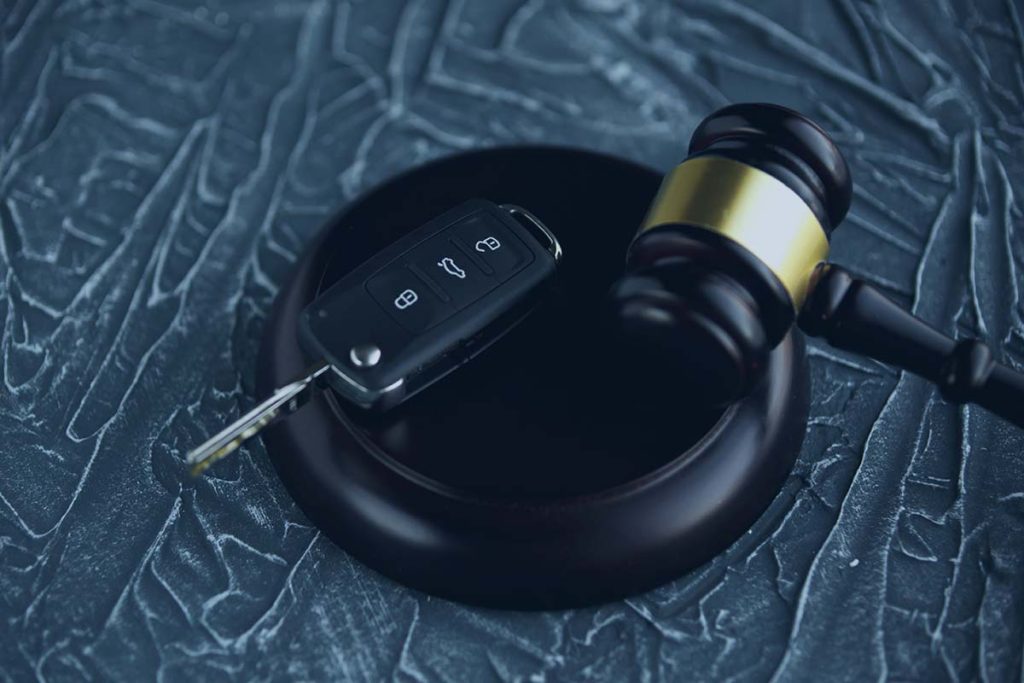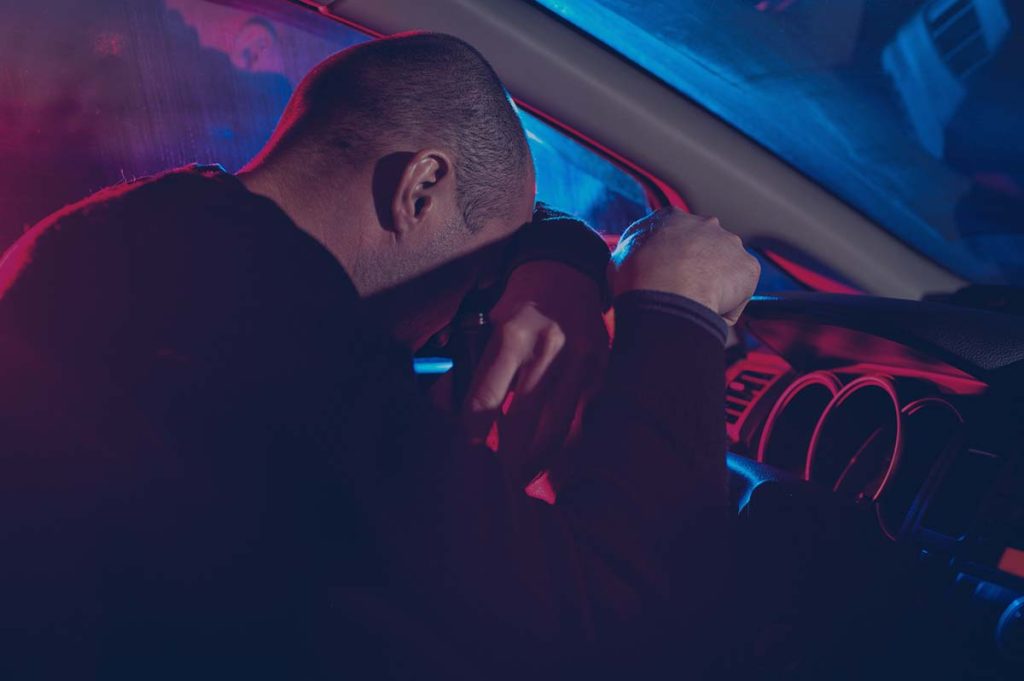
Last verified: January 2026. This guide reflects Hawaii Revised Statutes Chapter 291C.
📑 Table of Contents (click to expand)
Quick Summary
Hawaii has strict hit and run laws that require drivers to stop, provide information, and render assistance after any collision. The Aloha State also imposes special surcharges that fund trauma care and neurotrauma treatment.
- Property damage only: Misdemeanor, up to $100 surcharge
- Bodily injury: Misdemeanor, up to 1 year jail, $2,000 fine
- Serious bodily injury or death: Class B felony, up to 10 years prison, $25,000 fine, mandatory license revocation
- Special surcharges: $500 mandatory neurotrauma surcharge plus up to $500 trauma system surcharge
- Hawaii is a no-fault state: Your own insurance pays for your injuries initially
- Reporting threshold: $3,000 or more in property damage, or any injury or death
References:
- HRS § 291C-12: Collisions involving death or serious bodily injury
- HRS § 291C-12.5: Collisions involving substantial bodily injury
- HRS § 291C-12.6: Collisions involving bodily injury
- HRS § 291C-13: Collisions involving damage to vehicle or property
- HRS § 291C-14: Duty to give information and render aid
Hawaii Hit and Run Penalties

Property Damage Only (HRS § 291C-13)
Leaving the scene of a collision that only damages a vehicle or property is a misdemeanor:
- Surcharge: Up to $100 (deposited into the trauma system special fund)
- Additional penalties: Standard misdemeanor penalties may apply
Bodily Injury (HRS § 291C-12.6)
Fleeing a collision that results in bodily injury (not serious) is a misdemeanor:
- Jail: Up to 1 year
- Fine: Up to $2,000
- Surcharge: Up to $100 (trauma system fund)
Substantial Bodily Injury (HRS § 291C-12.5)
“Substantial bodily injury” is less severe than “serious bodily injury” but more than minor injury. Leaving such a scene is a Class C felony:
- Prison: Up to 5 years
- Fine: Up to $10,000
Serious Bodily Injury or Death (HRS § 291C-12)
“Serious bodily injury” means a physical condition creating a substantial risk of death or causing serious disfigurement or protracted impairment. A hit and run causing serious injury or death is a Class B felony:
- Prison: Up to 10 years
- Fine: Up to $25,000
- Neurotrauma surcharge: $500 mandatory (deposited into the neurotrauma special fund)
- Trauma system surcharge: Up to $500 additional
- License revocation: Mandatory
Your Legal Duties After an Accident (HRS § 291C-14)

Hawaii law requires every driver involved in a collision to:
- Stop immediately at the scene or as close as possible without obstructing traffic more than necessary
- Remain at the scene until all legal requirements are fulfilled
- Provide your information to the victim, property attendant, or law enforcement:
- Name and address
- Vehicle registration number
- Driver’s license (upon request)
- Render reasonable assistance to anyone injured, including arranging transportation to a medical facility
What If You Cannot Locate the Property Owner?
Under HRS § 291C-15, if you cannot find the owner of an unattended vehicle or property you struck, you must:
- Attach a written notice securely in a conspicuous place on the vehicle or property containing:
- Your name
- Your address
- Your vehicle registration number
- Notify the nearest police office without unnecessary delay
Reporting Requirements (HRS § 291C-16)
You must immediately notify law enforcement if an accident:
- Results in death or injury
- Causes property damage of $3,000 or more
Failure to report is a separate punishable offense.
Special Surcharges

Hawaii imposes special surcharges on hit and run offenses to fund medical care:
- Neurotrauma special fund: $500 mandatory surcharge for serious injury or death hit and runs
- Trauma system special fund: Up to $500 additional surcharge for serious injury or death, up to $100 for other offenses
These surcharges are in addition to any fines, imprisonment, or other penalties.
Hawaii Traffic Crash Statistics
According to the Insurance Institute for Highway Safety (IIHS) and NHTSA data for 2023:
- Total traffic deaths: 93
- Death rate: 6.5 per 100,000 population (well below national average)
- Deaths per 100 million vehicle miles: 0.89 (among lowest in nation)
- Car occupant deaths: 15 (16%)
- Pickup and SUV occupant deaths: 19 (20%)
- Pedestrian deaths: 22 (24%)
- Motorcyclist deaths: 27 (29%)
- Bicyclist deaths: 8 (9%, highest percentage in nation)
- Single-vehicle crashes: 71% (highest in nation)
- Alcohol involvement: Approximately 51% of fatally injured drivers had BAC of 0.08% or higher (highest in nation)
- Urban vs. rural: 91% urban, 8% rural
Key concerns: Hawaii has the nation’s highest rate of alcohol involvement in fatal crashes and the highest percentage of bicyclist deaths. The significant motorcyclist fatality rate (29%) reflects the island’s favorable riding weather and high motorcycle usage.
How Fault is Determined in Hawaii
Hawaii is a no-fault insurance state. After an accident:
- You file claims under your own Personal Injury Protection (PIP) insurance
- PIP covers medical expenses regardless of who caused the crash
- You may sue the at-fault driver only if injuries meet certain thresholds
Hawaii also uses a comparative negligence rule:
- Your damages are reduced by your percentage of fault
- If you are 50% or more responsible for the accident, you cannot recover compensation
Important: Never admit fault at the scene. Admitting fault can impact your insurance premiums and may disqualify you from compensation.
Juvenile Offenders
Depending on the severity of the offense, a minor involved in a hit and run may be:
- Processed through the juvenile justice system for less serious offenses
- Tried as an adult for crimes that would be felonies if committed by an adult, such as vehicular manslaughter or hit and run causing death
If a teenager under your care was involved in a hit and run, contact a defense attorney immediately and report the incident to law enforcement promptly.
Statute of Limitations
In Hawaii, you have two years from the date of the incident to file a personal injury or wrongful death lawsuit.
Common Defenses for Hit and Run in Hawaii
To convict you of hit and run, prosecutors must prove you drove the vehicle, the vehicle was involved in a collision, and you knowingly left the scene. Common defenses include:
- Lack of knowledge: You did not know you were involved in a collision
- Safety concerns: You left because you feared for your safety
- No injury or damage: The collision did not actually result in injury, death, or property damage
- Not the driver: Someone else was operating your vehicle
- Involuntary departure: You did not willfully leave the scene
All cases have unique facts. Consult with a defense attorney to discuss your specific situation.
Frequently Asked Questions
What should I do if someone hits my car and drives off in Hawaii?
Call 911 immediately. Document everything you can: the fleeing vehicle’s license plate, make, model, color, and the driver’s description. Collect contact information from witnesses. Do not chase the fleeing driver. The faster you act, the higher the likelihood of catching the driver.
What is the difference between “bodily injury” and “serious bodily injury”?
“Bodily injury” means physical pain, illness, or any impairment of physical condition. “Serious bodily injury” creates a substantial risk of death or causes serious disfigurement or protracted impairment of a bodily function. The distinction affects whether you face misdemeanor or felony charges.
Will my license be revoked for a hit and run in Hawaii?
Mandatory license revocation applies to hit and run involving serious bodily injury or death (Class B felony). For lesser offenses, revocation may still be ordered at the court’s discretion.
What is the neurotrauma surcharge?
Hawaii imposes a $500 mandatory surcharge on serious hit and run offenses. The money goes to the neurotrauma special fund, which supports care for brain and spinal cord injury victims. This is in addition to regular fines and penalties.
Should I chase a hit and run driver?
No. Remain at the scene and call 911 immediately. Chasing the driver could put you in danger and may lead to additional accidents. Your priority should be your own safety and gathering information for law enforcement.